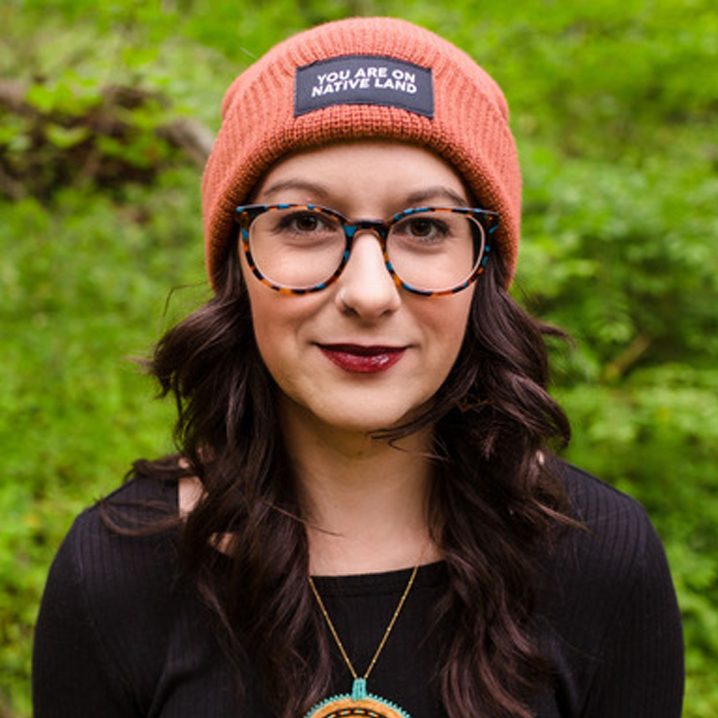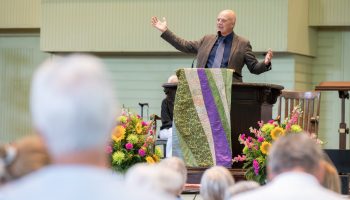
Award-winning author, poet-storyteller and activist Kaitlin B. Curtice is an enrolled citizen of the Potawatomi nation who writes on the intersections of spirituality and identity — and how that intersection shifts throughout life. Growing up on Indian Territory and in New Mexico, “our sanctuary was the outdoors,” Curtice wrote for “On Being.”
“But over time, I lost that magic,” she wrote. “I stopped hearing the voices of a created world and instead heard voices of rules and lessons on how to be productive instead of imaginative. I lost myself.”
People transform over the course of their life’s seasons; in her essay for “On Being,” Curtice detailed a hike, 40 minutes outside of Atlanta, with her family; “in that space,” she wrote, “my ancestors came flooding into my memory.” It was a slow, steady unfolding, “an invitation that seemed there waiting for me.”
“Every step I took in that moment brought me closer, both to their voices and to the voices of the dirt, the trees, the grass, a place that held memories not of my tribe, but of the Muskogee Creek people who were driven off this land in their own experience with forced assimilation,” she wrote. “That blood memory continues to pulse through my veins — memories, stories, language seeping into my everyday experiences.”
As an inter-spiritual advocate, Curtice participates in conversations on topics like colonialism in faith communities and the importance of interfaith relationships. She’ll close the Interfaith Lecture Series Week Five theme of “Spiritual Grounding for Social Change” at 2 p.m. today in the Hall of Philosophy.
Curtice is the author of Living Resistance: A Indigenous Vision for Seeking Wholeness Every Day and Native: Identity, Belonging, and Rediscovering God, which won the 2021 Midwest Book Award and 2021 Georgia Author of the Year Award. It also won the Forward INDIES 2020 Book of the Year Award.
“I wanted to write a book that would bring together my own reality as an Indigenous woman and the reality that I belong to the people around me, to humanity,” Curtice wrote in the introduction to Native. “We are responsible for the way we treat one another and the way we treat the earth.”
Her aim in writing Native was “to display my journey toward what it means to be human in all of that nuance and fullness.”
In many ways, it’s a book of remembering — the reality, she wrote, is that “we all began somewhere, and every person’s story affects how and with whom they interact.” In that remembering comes the recognition that “believing in Creator-God-Mystery, whatever that looks like, means we believe that somewhere, at some point, God breathed.”
“To know Mystery and to know ourselves is to know what it means to fight against any system that would oppress this earth we live on and every creature, human and nonhuman alike, who lives here; in knowing ourselves, we wrestle with the hard questions and seek out the hard truths,” she wrote.




